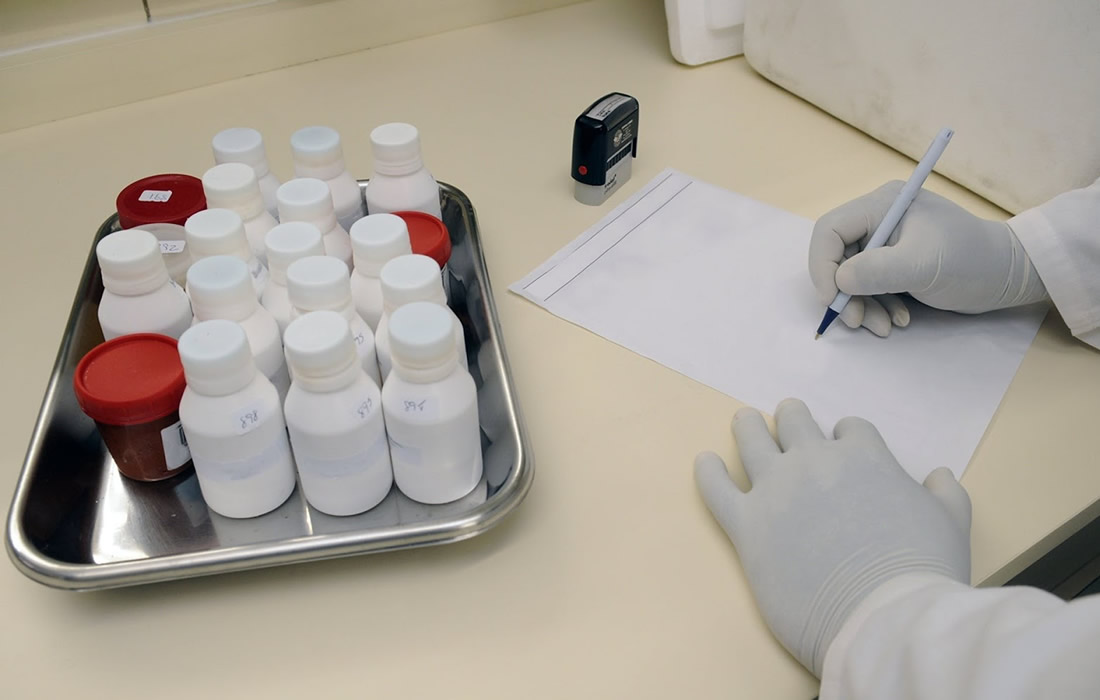Regenerative Medicine News and General Information
Yeast Cells Can Produce Drugs for Treatment of Psychotic Disorders
In an article published in the scientific journal Nature Chemical Biology, Biosynthesis of natural and halogenated plant monoterpene indole alkaloids in yeast, the researchers now present results with the artificial production of the naturally occurring substance, alstonine, which has shown promising results for use in treating mental disorders.
“Development of medicines from natural plant substances is widely used. However, since plants do not produce these substances to fight human diseases, there is often a need to modify them to make them more effective and safe,” says Michael Krogh Jensen, a senior researcher at DTU Biosustain.
The researchers hope that the yeast platform can play a prominent role in discovering and developing plant-based medicine.
The new research results prove that the engineered yeast cells can make other substances in the group of alkaloids than the substance vinblastine, for which the researchers presented results in 2022. In addition to producing the two new natural plant substances, alstonine and serpentine, the researchers have further developed the method to make 19 new derived variants of the two substances through a chemical process called halogenation, often used in medicine development. Today, up to 40 percent of the substances tested in human trials are produced by halogenation.
“We have found a method to make yeast cells use enzymes and carry out the same chemical process that takes place in halogenation. Plants generally can’t naturally carry out halogenation. Therefore, our versatile biotechnological platform is a possible method for optimizing and developing plant-based alkaloids that may then be used to make medicines against, for example, schizophrenia, for which there are many negative side effects such as insomnia, weight gain and reduced immunity, when using existing medicines” says Michael Krogh Jensen.
The researchers created the yeast-based cell factories by inserting a large number of genes from plants that can generate biosynthesis of natural plant substances. In addition, they inserted enzymes from bacteria to halogenate these natural substances and tested the production in yeast. Following the conversion into serpentine and alstonine, the substances were purified. The researchers then tested their structure — using an NMR analysis (Nuclear Magnetic Resonance spectroscopy), which looks at the composition of atoms — and investigated their bioactivity in a cell line from monkeys.
The research into the new yeast-based production of the halogenated plant-inspired natural substances and the 19 variants is still in an early phase, where the researchers are now finding the best candidates to use in treating mental disorders. The candidates must then be prepared for testing in clinical studies. At best, Michael Krogh Jensen expects to be able to send substances derived from alstonine to clinical trials in 2026.
Sources:
Samuel A. Bradley, Beata J. Lehka, Frederik G. Hansson, Khem B. Adhikari, Daniela Rago, Paulina Rubaszka, Ahmad K. Haidar, Ling Chen, Lea G. Hansen, Olga Gudich, Konstantina Giannakou, Bettina Lengger, Ryan T. Gill, Yoko Nakamura, Thomas Dugé de Bernonville, Konstantinos Koudounas, David Romero-Suarez, Ling Ding, Yijun Qiao, Thomas M. Frimurer, Anja A. Petersen, Sébastien Besseau, Sandeep Kumar, Nicolas Gautron, Celine Melin, Jillian Marc, Remi Jeanneau, Sarah E. O’Connor, Vincent Courdavault, Jay D. Keasling, Jie Zhang, Michael K. Jensen. Biosynthesis of natural and halogenated plant monoterpene indole alkaloids in yeast. Nature Chemical Biology, 2023; DOI: 10.1038/s41589-023-01430-2
Technical University of Denmark. “Yeast cells can produce drugs for treatment of psychotic disorders.” ScienceDaily. ScienceDaily, 10 November 2023. <www.sciencedaily.com/releases/2023/11/231110112450.htm>.
Materials provided by Technical University of Denmark. Original written by Peter Aagaard Brixen. Note: Content may be edited for style and length.
Images from:
Photo by Pixabay
https://www.pexels.com/photo/person-in-white-hand-gloves-writing-on-white-paper-207601/

